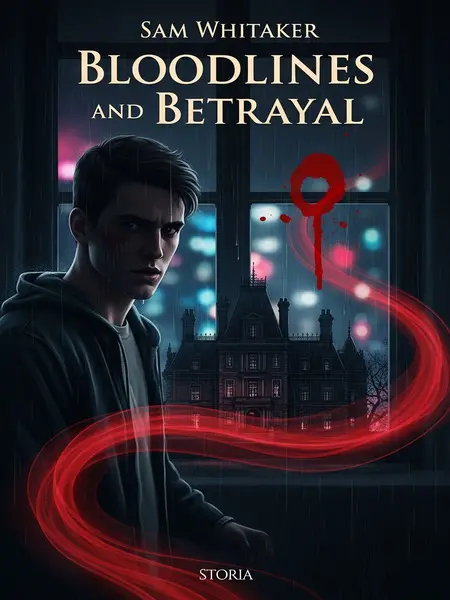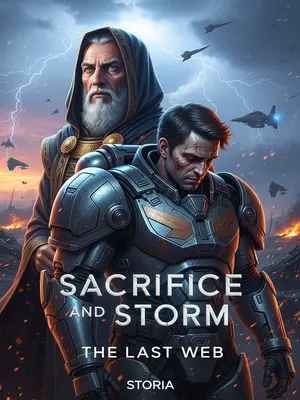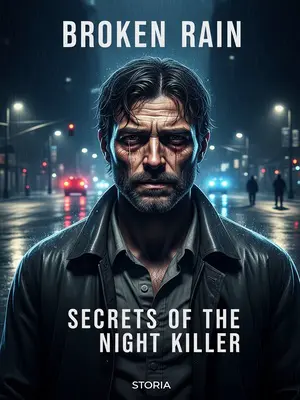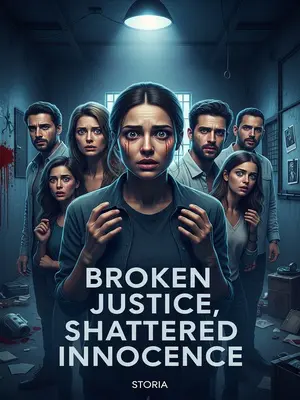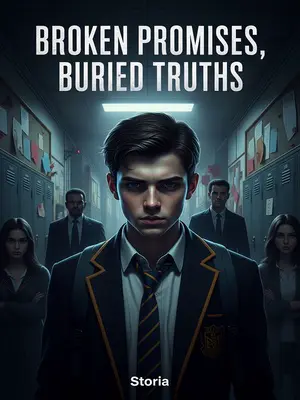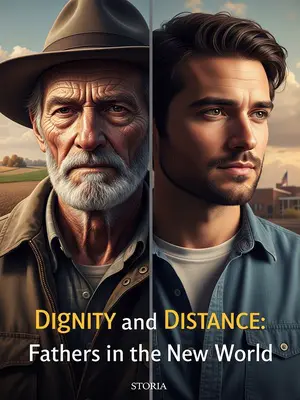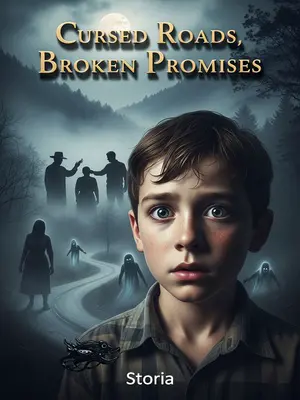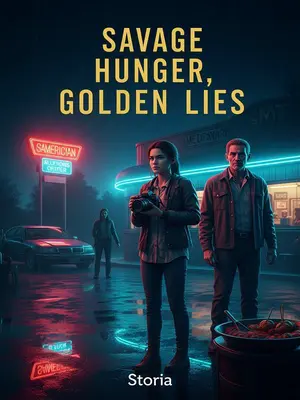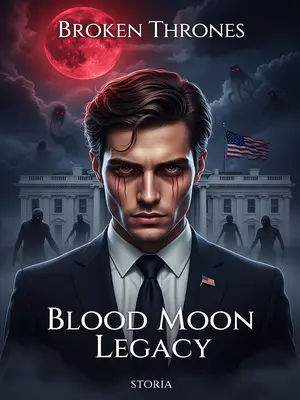Chapter 1: The Call That Changed Everything
That day, I was out hustling DoorDash orders, the smell of fries and burgers still clinging to my car, when my phone buzzed. The caller ID flashed an unfamiliar number. I figured it was just another customer getting antsy about their food—maybe someone eager for their fries before they went cold.
The late summer sun was glaring off my cracked windshield as I pulled over to answer. My hands were still greasy from the last delivery, so I wiped them down the thighs of my old Levi’s, bracing myself for a complaint. In this gig, you get used to weird calls and even weirder delivery notes—"Hey, can you just leave it by the garage?" "Knock twice, but don’t ring the bell," "Shoot me a text when you’re close." But this time, the voice on the other end was all business, clipped and cold.
"This is the Maple Heights Police Department, Criminal Investigations. We’d like you to come down to the station for some questions."
Those words slapped me awake. My mind jumped through a dozen scenarios—maybe I’d run a red light, maybe it was a case of mistaken identity, maybe some scammer with a badge. My heart hammered against my ribs, but I forced my voice to stay calm. "What’s this about? I’m in the middle of a delivery."
"Your father has passed away. We need your cooperation with some matters." The voice was flat, mechanical—like a robocall, only with the weight of a badge behind it.
For a moment, I thought it had to be a prank. Dad was healthy—sure, he had some high blood pressure, but nothing serious. The world seemed to lurch and slow, every sound fading out. My knuckles whitened as I gripped the steering wheel, the vinyl sticking to my palms. Why the police? Why not a neighbor, or the hospital chaplain? The silence on the line felt final, heavy as stone.
When I finally hung up, my mind went utterly blank. It was as if all the air had been sucked out of the world. Dad had been fine when I left for work that morning. How could he just be gone? Why were the police the ones calling, not a neighbor, not the hospital?
I didn’t even think about the station. I floored my old pickup and tore straight home. From the end of the block, I could see the blue and red lights spinning from two squad cars in the driveway, neighbors clustered on their lawns, whispering behind hands. An officer at the porch tried to stop me, but I juked past him and burst inside.
The whole street had turned out, the kind of crowd that only forms when something awful happens. Mrs. Phelps from across the way hugged herself, eyes wide and watery, while the Johnson kids peered from behind their battered mailbox, phones out, one of them already filming. I barely registered any of it. I just needed to get inside.
The front door hung wide open. Inside, officers moved with practiced efficiency—snapping photos, dusting for prints, evidence markers scattered across the carpet. Police tape fluttered across the entryway. On the living room couch, a body lay under a white sheet, the area around it cordoned off with yellow tape and little numbered markers. Blood had pooled and dried nearly black on the old carpet.
The air stank of copper and something sharp and sour, undercut by the low static hum of police radios. My sneakers stuck to the tacky floor as I stepped over the threshold. I stared at the couch—Dad’s favorite spot, the faded corduroy cushion where he watched every Browns game. Now it was surrounded by police tape and blood. My stomach clenched and twisted.
An officer who’d followed me in grabbed my arm. Another one turned from the kitchen, eyes wary, "Can I help you? Who are you?"
My mouth was bone dry. I managed to croak, "I’m Sam Whitaker. My dad—what happened to him?"
"You’re Henry Whitaker’s son, right?"
I nodded, but my whole body was trembling so hard I thought my knees might give out.
The officer’s grip loosened a little, but his gaze stayed sharp. "Your father was murdered. We didn’t see any signs of a break-in or a fight. Looks like the killer was someone he knew. Since you’re here, please come with us to the station so we can talk through everything."
Sitting in the back of the squad car, the shock finally bulldozed me. My chest heaved, and I broke down, sobbing so hard I could barely draw breath. It all happened so fast, my mind struggling to keep up.
The vinyl seat was cold and sticky, and I pressed my forehead against the glass, feeling the coolness seep into my skin. I watched my neighbors’ faces blur by as we pulled away—some staring, some whispering, one lady from down the block clutching a casserole dish to her chest. I’d never felt so exposed, so utterly helpless. The siren stayed off, but in my head, everything was screaming.
At the station, a policewoman took my fingerprints, her hands brisk but not unkind. Then a middle-aged man in a rumpled suit flopped down beside me.
His tie was crooked, and he smelled like a mix of stale coffee and cheap aftershave. He didn’t bother with introductions at first, just watched me with sharp eyes behind wire-rimmed glasses.
"I’m Detective Marcus Ellery. I’m the lead detective on your dad’s case. You’re Sam Whitaker, right?"
I nodded, desperate for answers, my voice stuck somewhere between my chest and my throat.
He seemed to sense what I needed, and gave me a quick rundown.
Every Saturday, our neighbor, Old Joe, would come over for a chess game with my dad, then they’d split a six-pack and shoot the breeze about back when the Browns still had a shot at the playoffs. Old Joe was a widower, too, and this had been their ritual for years. I knew it inside and out.
It was a neighborhood staple. Sometimes I’d hear their laughter drifting through the open window, the clink of beer bottles, the old country station humming in the background. Old Joe treated Dad like a brother. It was the kind of friendship you just don’t see anymore.
Today, the chess game was supposed to be at our place. Shortly after noon, Old Joe came over. He knocked and called out, but nobody answered. He got worried—my dad’s high blood pressure always made folks nervous—so he peeked through the back window.
What he saw nearly knocked him flat.
He saw my dad slumped on the couch, blood soaking his chest, a kitchen knife jutting out of him.
"What we need to know is, where were you today between eleven and noon?"
My breath caught. The question felt like a setup. "What are you saying? You think I did this?" I stared at Detective Ellery, completely stunned.
